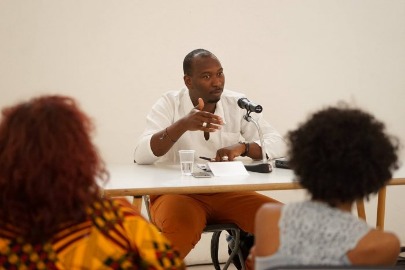
SOS Racismo will soon celebrate its 30th anniversary, and it is the best known anti-racist association in the country. The association’s office has shelves full of anti-racist literature and filing cabinets packed with documents concerning issues such as racist police violence cases – the European Council recently urged Portugal to tackle police violence that often targets those of African descent and immigrants.
“Racism survives because of the education system. If the system was radically anti-racist, we would have advanced much more by now,” he says. As that is not the case, there is much work to be done.
But what is anti-racist education and how can it be supplied? The first step is to acknowledge that racism exists.
“There is a certain elite that has been formatted to think that racism disappears if we don’t talk about it, and that the best way to deal with it is to transform it into a taboo,” Ba says.
Cristina Roldão, a sociologist whose work concerns education especially from the perspective of black students and who provides anti-racist training to teachers and future teachers, also brings up the issue of silencing racism as we talk on Zoom.
“It is essential to stop being ‘colour-blind’ and to acknowledge the structural and political dimension of racism,” Roldão explains. The idea is to focus on these dimensions instead of considering racism as a simple moral issue, resulting from ignorance or fear. “Racism is integral to how capitalism and nation-states are organised.”
Both Roldão and Ba also underline the necessity of critically discussing Portugal’s colonial history from various perspectives, and deconstructing the idea that the Portuguese were exceptionally humane colonisers, an opinion that is still strongly present.